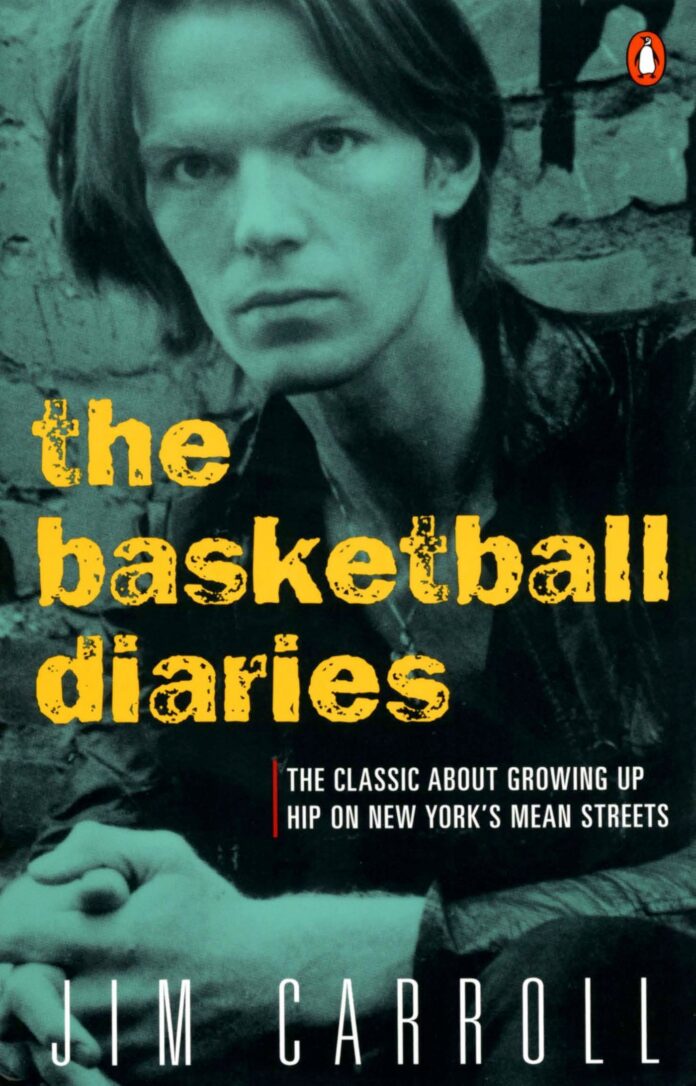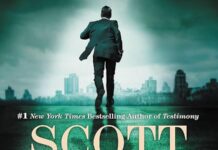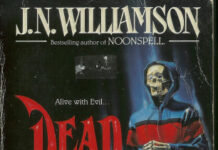In the relentless rhythm of urban adolescence, where innocence and chaos intertwine, few memoirs capture the raw pulse of youth quiet like Jim Carroll’s The Basketball Diaries. This unflinching chronicle dives headfirst into the shadows and sparks of a life marked by talent, turmoil, and the relentless pursuit of identity. As we step into Carroll’s world-a collage of street courts, fleeting dreams, and haunting escapes-navigating Darkness and Dreams seeks to unravel the layers of his harrowing yet poetic narrative, exploring how the memoir balances the stark realities of addiction and the ephemeral light of hope. This review invites readers to revisit a seminal work that continues to resonate with honesty and gritty authenticity.
Exploring the Raw Emotional Landscape: How The Basketball Diaries Captures Teenage Turmoil and Search for Identity

throughout the memoir, the shifting emotions of despair, anger, and fleeting joy are mapped out with haunting clarity. The artistic interplay of Carroll’s poetry and prose invites readers to walk alongside a young soul wrestling with identity amid external chaos. Key themes emerge vividly:
Best-Selling Books in This Category
- Alienation: The stark sense of being an outsider in both social circles and within oneself.
- Yearning: The desperate reach toward meaning, stability, and acceptance.
- Transformation: The fragile balancing act between self-destruction and self-discovery.
| Emotion | Impact on Identity |
|---|---|
| Rebellion | Shapes defiance and desire for freedom |
| Loneliness | Heightens self-reflection and vulnerability |
| hope | Drives the search for purpose and meaning |
The Intersection of Dreams and Despair: Juxtaposing Aspirations with Addiction in Jim Carroll’s Memoir

Jim Carroll’s memoir is a raw exploration of the fragile balance between youthful ambition and the pull of addiction. Amidst the gritty backdrop of New York City, Carroll paints a vivid portrait of a teenager caught between the brightness of his dreams as a poet and basketball player and the dark abyss of heroin dependency. The tension between thes opposing forces is palpable, creating a narrative that refuses to romanticize either side. His aspirations shimmer like distant stars-untouchable yet essential-while the despair of addiction threatens to snuff them out altogether. This stark dichotomy breathes life into the memoir, making it a compelling study of human resilience and vulnerability.
- Dreams as a beacon: Carroll’s commitment to poetry and basketball acts as a guiding light through chaos.
- The descent into darkness: The relentless grip of heroin showcases the devastating consequences of addiction.
- Moments of hope: Despite the spiraling despair, flashes of determination and insight shine through.
| Aspect | Dreams | Despair |
|---|---|---|
| Symbolism | Poetry & Basketball | Heroin & Isolation |
| Emotional Tone | Hopeful, Aspirational | Bleak, Desperate |
| Outcome | Potential for Growth | Cycles of Dependency |
Unflinching Portrayal of Urban Life in 1960s New York City Through Vivid and Gritty Storytelling
Jim Carroll’s narrative strikes with the raw intensity of the city’s own heartbeat, exposing the relentless pulse of 1960s New York in all its unvarnished glory. Each page drips with the tangible grittiness of daily survival, portraying streets where dreams and despair intertwine without respite. The author’s firsthand witness to urban decay and youthful rebellion transforms his diary into an immersive journey through graffiti-laced subways, smoke-filled apartments, and dimly lit basketball courts – spaces where hope flickers amid omnipresent shadows. The prose doesn’t shy away from the darker alleys of addiction and violence but instead wields them as instruments to deepen the authenticity of this chaotic era.
Several elements converge to craft this compelling portrait, including:
- Unfiltered Descriptions: Scenes painted with vibrant, almost cinematic detail avoid romanticizing, instead embracing the rough edges of city life.
- Voices of the Marginalized: Carroll gives life to characters who dwell beyond the spotlight-junkies, street hustlers, and dreamers-adding layers of complexity to the urban tapestry.
- Dynamic Juxtapositions: Stark contrasts between moments of fragile innocence and brutal reality enhance the narrative’s emotional weight.
| Atmosphere | Impact on Narrative |
|---|---|
| Smoky, claustrophobic nightclubs | Amplifies teen alienation and search for identity |
| Graffiti-scrawled subway cars | Symbolizes rebellion and transient city life |
| Empty urban playgrounds | Reflects loss of innocence and abandoned dreams |
Through this textured depiction, Carroll invites readers not just to observe but to inhabit the complex universe of a city teetering between chaos and continuity. The narrative becomes a mirror reflecting both the grim realities and the elusive aspirations nestled within the urban sprawl, revealing a world where every alleyway holds a story, every encounter a lesson in survival.
The Role of Poetry and Art in Navigating Trauma and Finding Moments of Beauty Amidst Chaos

Amidst the raw upheaval of Jim Carroll’s memoir, the presence of poetry and art emerges not merely as a backdrop but as a vital lifeline. These creative expressions serve as both sanctuary and compass, offering fragments of beauty within the relentless storm of addiction and despair.Carroll’s own writings ripple with the intensity of youthful anguish, yet they also sparkle with moments of clarity and grace, illustrating how art can distill chaos into meaning. The act of creating becomes a radical form of resistance, where pain is transformed into something palpable and poignant-a way to assert identity when everything else seems disintegrating.
In exploring trauma through a creative lens, several key aspects come to light:
- Emotional catharsis: Poetry unlocks suppressed feelings, offering a voice to what often remains unspoken.
- Outlook shifts: Art reframes suffering,highlighting the coexistence of beauty-even in brokenness.
- Connection and empathy: Shared creative works build bridges between isolated souls navigating pain.
These elements underscore how creativity provides not just escape but a path toward reconciliation with inner tumult. A simple table reminds us of this transformative power in Carroll’s journey:
| creative Medium | Function in Trauma | Carroll’s Example |
|---|---|---|
| Poetry | Emotional release & reflection | raw, confessional verses |
| Art | Visual symbolism & hope | Imagined imagery in diaries |
| Music | Rhythmic expression & connection | Experiences with punk subculture |
Impact of The Basketball Diaries on Memoir genre and Its Influence on Later Literary and Film Adaptations

Jim Carroll’s The Basketball Diaries broke new ground in the memoir genre by unflinchingly diving into the chaotic world of adolescence, addiction, and artistic ambition. Its raw, poetic narration challenged conventional memoir structures, emphasizing emotional truth over chronology. This blend of gritty realism and lyrical introspection opened doors for future writers to explore darker, more complex facets of personal experience without romanticizing or sanitizing their stories. The book’s unapologetic candor and innovative narrative voice have since become a benchmark for memoirists daring to dissect the shadows within their own lives.
The influence of Carroll’s work extends beyond literature, inspiring a wave of film adaptations and media that echo its themes of vulnerability and resilience. Filmmakers have drawn from its evocative imagery and fragmented storytelling style to craft adaptations that feel visceral yet intimate. The legacy is evident in a variety of later works that employ non-linear narratives, youth-centered rawness, and authentic character struggles, qualities that are now staples in coming-of-age cinema.
- Authenticity in depiction of addiction – setting a high bar for memoir-based storytelling.
- Hybrid narrative style – blending poetry, diary entries, and prose.
- Influence on youth-centered artistic narratives in both literature and film.
| Aspect | Influence | Example Adaptations |
|---|---|---|
| Raw Memoir Voice | Encouraged confessional writing styles | Girl, Interrupted, Go Ask Alice |
| Fragmented, Non-linear Form | Inspired narrative experimentation | Requiem for a Dream, Trainspotting |
| Portrayal of Addiction | Normalized brutal honesty in depicting substance abuse | Leaving Las Vegas, Gorgeous Boy |
Analyzing the Narrative Voice: Authenticity, Vulnerability, and the Power of Jim Carroll’s First-Person Perspective
Jim Carroll’s first-person narration in The Basketball Diaries is a raw conduit of authenticity that pulls readers deep into the vortex of his adolescent turmoil. The unfiltered voice crackles with an electric honesty,exposing the tangled web of addiction,aspiration,and despair that defines his experience. This perspective transcends mere storytelling; it becomes an intimate confession that invites empathy without pity.Carroll doesn’t cloak his vulnerability but rather wields it as a tool of connection, allowing readers to inhabit the fragmented psyche of a young man caught between dreams and self-destruction.
In this narrative framework, Carroll’s voice oscillates with a cadence both poetic and urgent, capturing the contradictory nature of youth on the edge. The power of the first-person perspective lies not onyl in its immediacy but in its unyielding refusal to sanitize reality. Through vivid snapshots of daily life, he elaborates:
- The euphoria and chaos of street-level drug use
- The complex interplay of hope and hopelessness
- The fragility of identity amid societal and personal breakdowns
| Aspect | Impact on Reader |
|---|---|
| Honesty | Creates trust and emotional immersion |
| Vulnerability | Fosters profound empathy |
| Urgency | Maintains tension and engagement |
Themes of Friendship, Betrayal, and Survival in the Face of Overwhelming Darkness and Uncertainty
Navigating the relentless grip of addiction and the ever-present threat of darkness, Carroll’s journey epitomizes the instinctual drive to endure when all odds feel insurmountable. In the face of uncertainty, survival transcends mere physical endurance; it demands an emotional resilience rooted in vulnerability and grit. The following table encapsulates key facets of this relentless struggle:
| Element | Impact |
|---|---|
| Friendship | A source of fleeting sanctuary and complex emotional tension |
| Betrayal | Shatters trust but can catalyze moments of clarity and growth |
| Survival | Becomes a daily battle against overwhelming inner and outer darkness |
- Friendships serve as both anchor and torment, reflecting the fragile dance between love and abandonment.
- Betrayals expose harsh truths, challenging the protagonist’s perceptions of loyalty and self-worth.
- Survival is an evolving process, not a singular act-a testament to the endurance of the human spirit amidst despair.
specific Recommendations for Readers Seeking Memoirs That Balance Harsh Realities with Artistic Expression
For readers who crave memoirs that artfully merge the starkness of personal struggle with evocative prose, Jim Carroll’s The Basketball Diaries stands as a compelling exemplar. The book’s raw, unvarnished depiction of addiction and youthful turmoil is underscored by Carroll’s poetic sensibility, transforming pain into vivid, haunting imagery. If your appetite leans toward narratives that don’t shy away from the darkness but also illuminate the human spirit through lyrical expression, this memoir provides a rare and resonant balance.
In seeking similar works, consider titles that strive beyond simple confession to embrace the craft of storytelling as a form of catharsis. Authors who weave their hardships into reflective,often experimental frameworks offer a richer,more fulfilling experience. Here are a few curated suggestions to navigate this intricate literary landscape:
- Mary Karr’s The Liars’ Club – A blend of humor and tragedy, capturing the complexities of family and addiction.
- Augusten Burroughs’ Running with Scissors – Darkly comedic and brutally honest insight into an unconventional childhood.
- Jeannette Walls’ The Glass Castle – Strikingly candid portrait of resilience amid poverty and neglect.
| Memoir | Artistic highlight | core Theme |
|---|---|---|
| The Basketball Diaries | Poetic stream-of-consciousness | Addiction & Youth |
| The Liars’ Club | Humor amid hardship | Family Dysfunction |
| Running with Scissors | Dark comedy | Psychological Chaos |
| The Glass Castle | Memoir with vivid imagery | Resilience & Poverty |
How The Basketball Diaries Resonates with Contemporary Audiences Struggling with Addiction and Identity
Jim Carroll’s The Basketball Diaries weaves a raw tapestry of vulnerability that continues to strike a chord with modern readers facing addiction and identity crises. Its candid exploration of adolescent turmoil – torn between dreams of glory and the suffocating grip of substance abuse – mirrors contemporary struggles, making Carroll’s journey feel less like a relic and more like an ongoing conversation. His writing breathes life into the chaotic mix of hope and despair,highlighting the universal human need to carve out a sense of self amid internal and external chaos.
What anchors this connection is the memoir’s unflinching honesty paired with moments of poetic grace, reminding audiences that beneath the haze of addiction lies a yearning for belonging and purpose. For today’s readers, the lessons embedded within Carroll’s experience are as relevant as ever:
- The fragility of youth and dreams caught between societal expectations and personal demons.
- The cyclical nature of addiction as both an escape and a prison.
- The struggle for identity when addictions blur the lines between self and survival.
Exploring the Cultural and historical Context That shapes the Memoir’s Powerful and Enduring Messages
Jim Carroll’s memoir unfolds against the gritty backdrop of 1960s and 70s New York City, a crucible of urban decay and cultural revolution. The turbulent era, marked by social upheaval, anti-war protests, and a flourishing underground art scene, seeps into the narrative, shaping Carroll’s raw and unfiltered voice. The Basketball Diaries reflects a city teetering between hope and desperation, where the dreams of youth collide with the harsh realities of addiction and marginalization. This vivid cultural tapestry is essential for understanding the memoir’s enduring resonance-its themes of rebellion, survival, and the search for identity are inseparable from the world that birthed them.
Delving deeper, the historical context reveals the memoir’s complex interplay between personal trauma and broader societal challenges. Carroll’s experiences mirror the struggles faced by many young people of his generation: entangled in systems of poverty, violence, and limited chance yet fueled by a relentless creative spirit. Below is a glimpse of some key cultural and historical elements that underscore the memoir’s powerful messages:
- Counterculture Movements: Embracing nonconformity and artistic experimentation
- Urban Hardship: Navigating environments rife with crime and social neglect
- Drug Epidemic: chronicling the rise of heroin use and its destructive impact
- Youth Alienation: Capturing feelings of isolation amid dynamic societal change
| Aspect | Influence on the Memoir |
|---|---|
| 1970s New York | Backdrop of decay and defiant creativity |
| Music & Art Scene | Fuel for Carroll’s imaginative expression |
| Socioeconomic Struggles | Source of tension and personal conflict |
| Addiction Crisis | Central narrative arc of descent and survival |
Reflecting on jim Carroll as a Writer: His Unique Blend of Poet, Musician, and Memoirist Influencing Generations
Jim Carroll’s writing defies easy categorization, embodying a compelling synthesis of poet, musician, and memoirist that resonates through every line of The Basketball Diaries.His prose crackles with the raw energy of a punk rock anthem, while his poetic sensibilities lend a lyrical, almost hypnotic cadence to the narrative.Carroll’s ability to capture the turbulence of youth, addiction, and artistic ambition is not merely confessional but transformative, inviting readers to witness a life lived on the razor’s edge without flinching. This fusion of art forms-where the rhythm of poetry and the spontaneity of music inform his memoir-cements Carroll as a singular voice whose influence ripples across generations of writers and artists alike.
What distinguishes Carroll’s work is how he maps the messy intersections of creativity and chaos with unvarnished honesty. His memoir doesn’t just recount experiences; it pulses with a visceral immediacy, highlighted by an unmistakable sense of place and time. Consider the following elements that underscore his unique contribution:
- Poetic Imagery: vivid metaphors that transform mundane moments into powerful, symbolic gestures
- Musicality: prose that mirrors the improvisational and rebellious spirit of punk and jazz
- Memoir Authenticity: a candid exploration of personal struggle that avoids sensationalism
| Aspect | Carroll’s Signature Style | Impact on Readers |
|---|---|---|
| Voice | Confessional yet raw, poetic yet grounded | Fosters deep empathy and connection |
| Structure | Non-linear, mirroring the chaos of adolescence | Engages readers with authentic pacing |
| Themes | Addiction, youth, dreams, and despair | Encourages reflection on vulnerability |
The Basketball Diaries is more than a memoir-it is a raw, unfiltered passage through the shadows of youth, addiction, and resilience. Jim Carroll’s voice, both haunting and honest, invites readers to confront uncomfortable truths while holding onto the faint glimmers of hope that shine through his darkest nights. Whether viewed as a stark urban diary or a poetic lament, this book remains a compelling journey that challenges us to navigate the depths of our own dreams and darkness alike.















